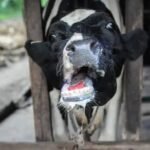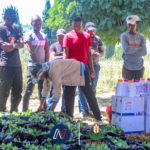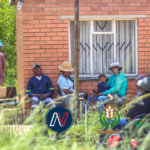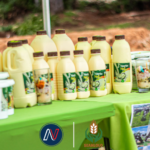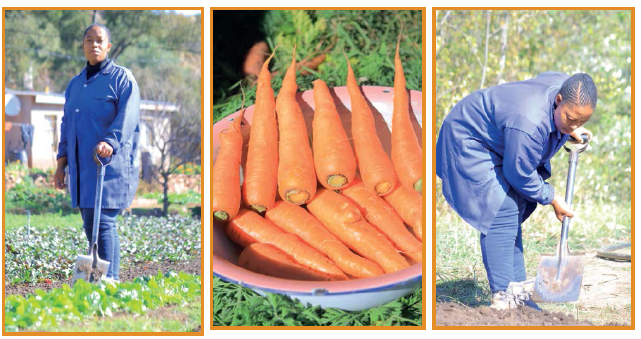At 33 years old, Makhotso Khoaeane of Quthing-Theoheli, has lived through the kind of farming journey that breaks many, but despite poor markets, climate disasters, and limited resources, she continues to rise.
With each failed crop, she has found a reason to try again, shifting, learning, and eventually carving a small but stable space with carrots and beetroot, two crops that have brought her a renewed hope.
“I still get up and continue,” she says, her voice filled with calm defiance.
“Farming is hard, but it is mine.”
Makhotso began her journey in 2015, full of ambition and eager to feed her community.
Her first crop, red sorghum. It produced an impressive harvest. But, she was met with an unfortunate mismatch, the market preferred white sorghum instead.
“People demanded white sorghum instead. That market mismatch hindered my progress,” she recalls.
“It was the first lesson, not everything you grow will be needed or appreciated by the market.”
That lesson echoed again five years later. In 2020 after switching to red cabbage and tomatoes, she found herself once more on the wrong side of market trends in her area.
“It was such a loss. When started rotting and decomposing, I was left with no choice but to give them away for free.”
And yet she persisted.
In 2023, she increased her production of the failed red cabbage, tomatoes and added green peppers to the mix. It made sense since she had already introduced the commodities to her target market, but the market did not return the favour.
“I was only selling about 20 green peppers per week, it was a loss. Over that we experienced a heavy hail storm that destroyed everything before I could harvest.”
The next year brought more heartbreak to her persistence which saw another commodity, red onion, added to the list.
Pests ravaged her cabbage crop even though she had applied the right treatment, then drought followed.
“I was forced to harvest my red onions before they were ready forcing me to sell at the lowest price, but they still got rotten and decomposed. I had nothing to show for the efforts.”
For many, these harsh years would have been the end, but for Makhotso, they were preparation.
In 2025, she changed her course again—this time towards carrots and beetroot, crops less common in her area and more resilient to the harsh conditions she often faced.
“There are few people who produce them. They are needed in every season and that is what gave me a renewed hope.”
The results were different. The market began to respond.
“They are less affected by pests and diseases and unlike my earlier crops, people actually buy them.”
Today, ‘Makhotso sells around 9 kilograms of carrots a day, walking the streets of Quthing town to deliver her produce directly to customers.
“Some collect from my farm and have shown they like that they get them fresh from the soil.”
She’s tried to expand her market—approaching local guest houses and large shops but unfortunately the doors have not yet opened.
“They keep saying I should leave my contacts but nothing happens after that.”
For now, she remains focused on what she can control, walking, selling, delivering.
“I thought about packaging but since I just started and my current clientele seems happy with getting the produce fresh and straight from the farm, I will remain her until I have grown enough.”
Her strategy is personal and rooted in survival. It blends direct farm sales, street vending, and small efforts to enter formal markets. She knows it’s not easy, but it’s working.
“The connection with customers is what keeps me going,” she says.
Behind Makhotso’s grit is a team: her family.
Her husband and sons form the core of her workforce.
“We work hard together and farm as a family because farming and family life are both demanding and hard to balance, but with all of us involved, it’s coordinated.”
In earlier years, she says she hired additional workers, hoping to ease the workload but low profits made it unsustainable her decision to co-opt her family.
Makhotso’s advice to young and aspiring farmers is firm and practical.
“Before you plant anything, make sure you are prepared with all that needs to be known including the correct and advanced equipment like shade nets to protect crops and good irrigation system.”
These things, she insists, are not luxuries but are necessities making farming less painful.
Her future plans are simple but clear, better tools, better practices, and better support.
In a country where many smallholders are trapped in cycles of crop failure and poor returns, Makhotso’s story is rare. She hasn’t broken through the system—but she has found a way to survive within it, holding tight to the dream that one day, the system will work for her too.
“I have walked a difficult journey since 2015, but carrots and beetroot have opened something for me. I’m not where I want to be—but I’m no longer where I was.”


